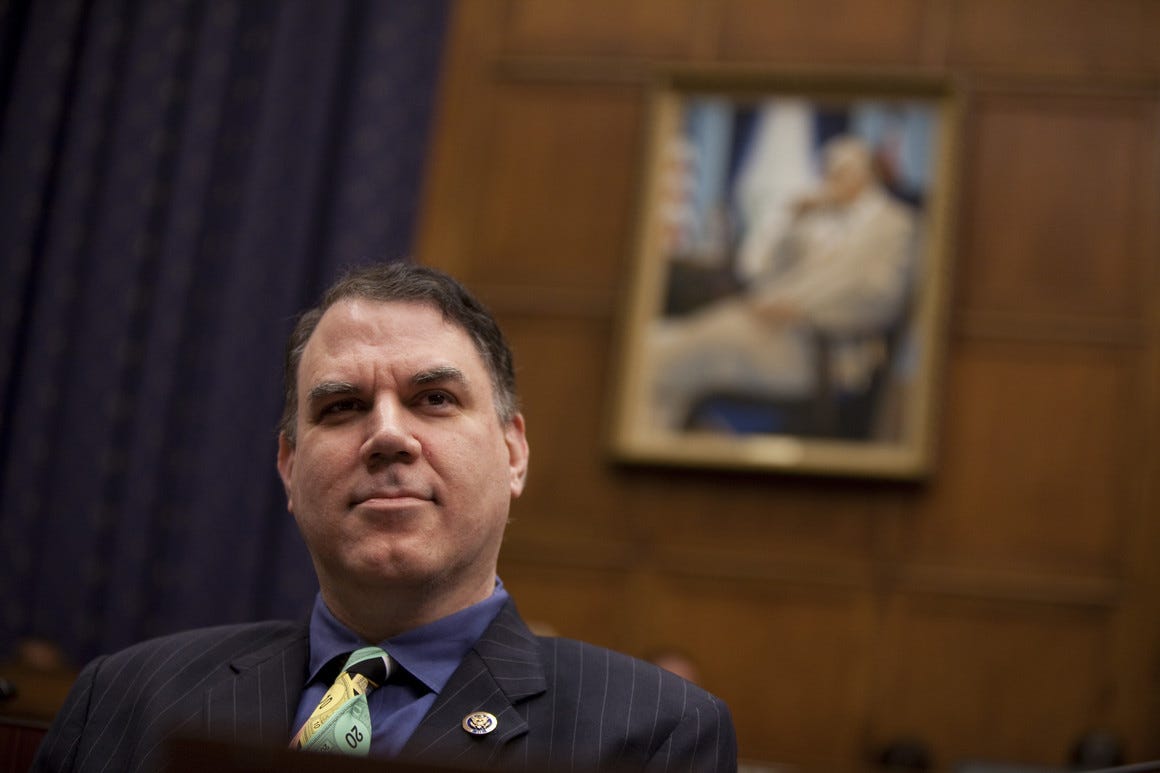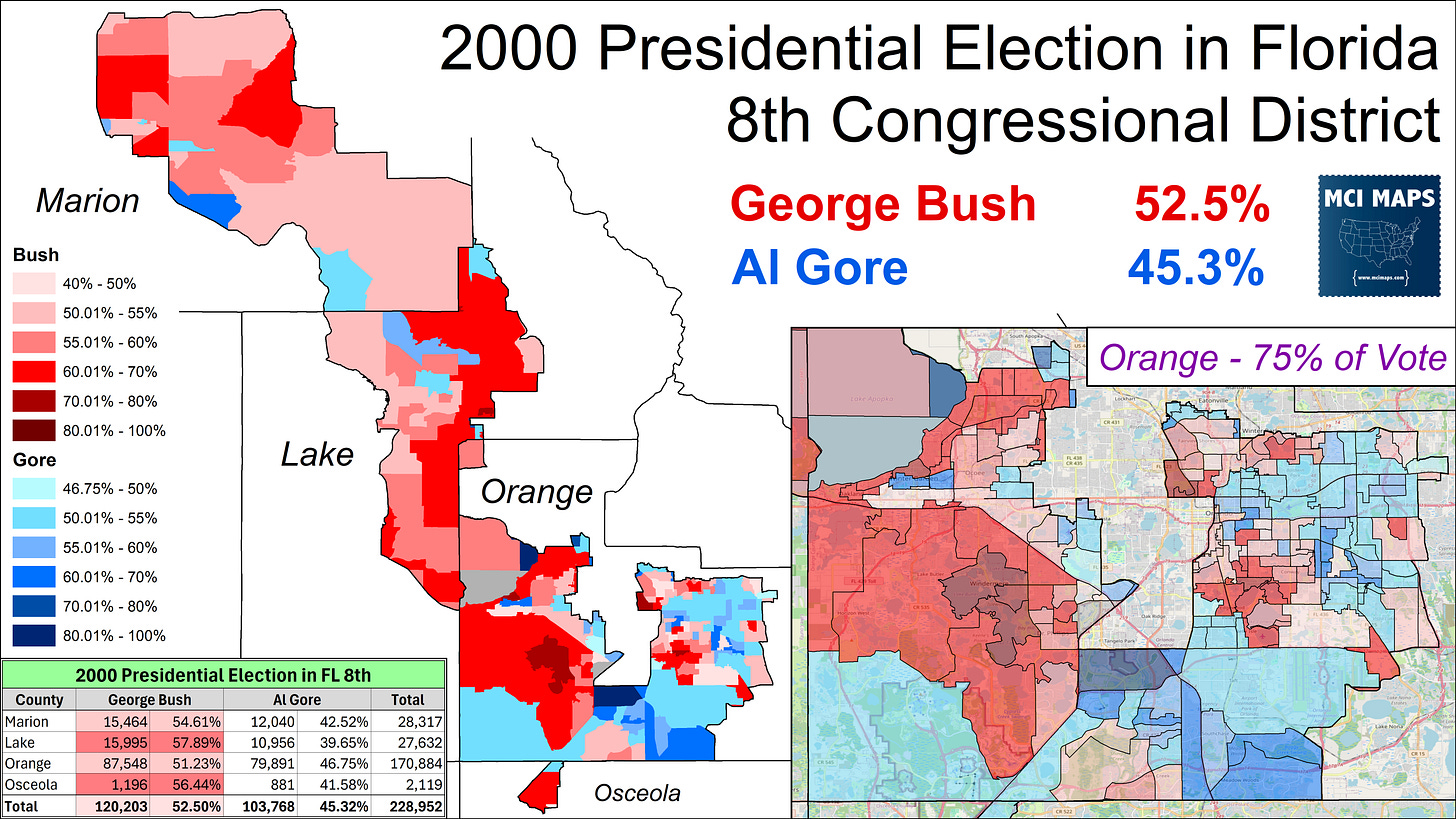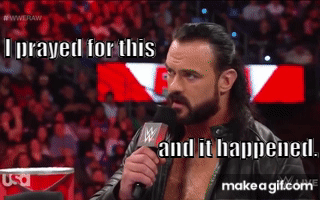Issue #176: Alan Grayson's Elections in Florida - Part 1: Controversial Rise
Don't get sick..... but if you do.......
In my 2024 Florida Qualifying article from a few weeks back, I discussed the Democratic candidates fighting to take on Rick Scott in the US Senate race. There I discussed how the top two candidates are frontrunner former Congresswoman Debbie Mucarsel-Powell and self-funding challenger Stanley Campbell. Also in this race is former Congressman Alan Grayson; who represented the Orlando area off and on from 2008 to 2016.
For the emerging Gen-Z political wing, Grayson may just be a name, someone from before their time. For me, Grayson emerged into the political scene when I was finishing my Bachelors Degree. His first controversies exploded when I was in Graduate school. (God I’m old.) For the older millennial like myself, Grayson represents an era just as we were finishing college and moving into the “real world.” In many ways he represents an important transition period from the height of the Obama Revolution, the emergences of the Tea Party, and the rise of the MAGA crowd.
While Grayson is unlikely to be a real contender for the nomination, having lost several campaigns in the last decade or so, his announcement was still met with a resounding UGHHHHHH from a vast majority of Florida Democrats.
So why is that? Why did Grayson’s announcement yield such a dud reaction? At one point, Grayson had a large following. As late as 2016, a time when he was hated by the Democratic “establishment,” Grayson had a large following of lefty/liberal activists who loved his outspoken style and left-wing stances. The self-proclaimed “Congressman with Guts” was seen by many lefties as the needed counter to a cautious and compromised moderate leadership. However, today, that feeling is largely eroded.
So what happened? Well I’m going to give the full story of the Grayson political saga. This will actually be a two-parter. This issue will cover Grayson’s rise in 2008 and fall in 2010, a time when even amid controversy he still had a strong basis. The 2nd part will cover is his return to Congress in 2012, a failed Senate run in 2016, and a litany of more extreme controversies that culminating in a reputation as a pariah and perennial candidate.
Lets dive in.
Rising National Profile
Alan Grayson came into the Florida political scene in the 2nd term of George W Bush’s presidency. Grayson was born and raised on the Bronx, NY; the son of two public school teachers. In a very revealing biography, Grayson recounted the hard financial times his family would often be in. Despite his working-class upbringing, the clearly-bright Grayson worked hard in his studies while also working part-time jobs. Thanks to his academic skills, he was accepted to Harvard and worked his way through school as both a janitor, security guard, and student journalist. After getting his Bachelors, he was accepted to and graduate from Harvard Law School.
Following Harvard, Grayson would clerk with the Colorado Supreme Court and work in the federal DC court system. He made a name for himself as an attorney going after fraud surrounding war contracts. This had been his focus in the 1990s, but it propelled him into the national spotlight with the Iraq War. With the invasion of Iraq, Grayson focused on whistleblower complaints related to fraud in war contracts. In 2006, the Wall Street Journal referred to Grayson as a “waging a one-man war against contractor fraud in Iraq.” Grayson’s anti-war position further endeared him to the liberal movement during the Bush administration. Grayson’s legal career, at that point nearly 2-decades old, had made him a millionaire, which would allow him to self-fund races as he needed.
Running for the Florida 8th
In 2006, Grayson made his first run for office. He ran for the Florida 8th, which was a GOP-leaning seat anchored in Orange County but stretching into Lake and Marion as well as holding a sliver of Osceola. The district was part of the 2002 Republican Gerrymander, which I wrote about in this piece, that aimed to cement the Republican lead in the Congressional delegation. In 2000, the 8th had been based entirely in Orange County and backed Bush by 2.4% while electing Republican Ric Keller that same day. The 2002 redraw turned the seat into a Bush +7 district.
The district redraw kept it steadily in Republican hands through the next several elections. Keller has won the old 8th by just 1.4% in 2000. Following the redraw, he won re-election in 2002 by 30% and 2004 by 21% However, Democratic growth in Orange county would mean the district would not remain so Republican. The first big crack at the seat came in 2006.
In the 2006 midterm, Grayson made a play for the seat. He self-funded his campaign to the tune of $700,000 and faced off against businessman Charlie Stuart and Orange County commissioner Homer Hartage. In his first outing, Grayson focused on the money he’d saved taxpayers by investigating waste and fraud in Iraq war contracts. Stuart, however, had the backing of prominent Democratic officials like recently-retired Senator Bob Graham. Hartage, who represented a seat largely not in the Congressional district, lagged behind both Stuart and Grayson. In the end, Stuart secured the primary with 48% of the vote to Grayson’s 36%. Stuart, however, would fail to unseat Keller, losing 53% to 46%. In a way, this primary loss for Grayson was a blessing, as it gave him another opportunity to make a play; something a more high-profile general election loss may not have allowed.
In 2008, Keller went back on his four-term pledge, saying he’d run again. Keller’s about-face did not play well in the district, leading him to only defeating Republican attorney Todd Long by a 53% to 47% in the GOP primary. That primary had seen Keller outspend Long and hit the challenger for drunk-driving incidents from the past. The narrow win was seen as a glaring warning sign by all observers. Meanwhile on the Democratic side, Grayson won the primary this time, taking 49% in a 5-way race; with Stuart running again but only getting 28% of the vote. This set up a major battle for Grayson against a weakened Keller.
The general election race was seen as a major battleground in the House contests; which seemed poised to see Democrats expand on their 2006-won majority. In the contest, Grayson displayed the brutal campaign style he’d become well known for when he ran mailers arguing Keller had cheated on his first wife with a young staffer he’d hired after his election to congress; who he would later marry in 2005. When questioned on the personal attack, Grayson answered it was a response to attacks on him claiming he wanted to defund the troops in Iraq. The nasty back and forth did not backfire on Grayson, as the claim against Killer dated back at least a year and had some, lets say, credibility.
In the contest, Grayson self-funded over $2,600,000 for the race while raising another $500,0000; allowing him to outraise the Congressman. A September profile of the race showed the national media and party operatives viewed Keller in serious trouble. Keller, meanwhile, was counting on Grayson being perceived as too liberal for the district; hoping that his own moderate views on the Iraq war (he’d voted against the troop surge) would benefit him. Keller’s hope came for nothing. With the 2008 cycle turning into a major Democratic wave, Grayson swept out Keller by 4 points.
The Grayson win was heavily thanks to the dominance of Orange County; which gave Grayson 54% of the vote. The growth in Orange, specifically in a Democratic direction, turned this former gerrymander into a swing district. In such a blue year, this was doom for Keller.
The same day Grayson won the district, Obama carried the seat on his way to taking Florida’s electoral votes. Obama’s 4.6% margin was slightly above Grayson’s 4%.
With the election, Grayson went into Congress during Obama’s first term. This would be the time of the Democratic super-majority, which saw the administration work to pass a flurry of major legislation. The upcoming 111th Congress would go on to be viewed as the most productive since the Great Society. It would be on one issue, however, where Grayson would burst onto the national scene; healthcare.
First Term Controversies
Grayson was just one of several newly-elected Democrats following the 2006 and 2008 blue wave elections. However, in the fall of 2009, he made national headlines. As the House of Representatives was in the middle of massive debates over what would eventually become the groundbreaking Obamacare law, Grayson took the GOP to task for its lack of an alternative plan. In his speech, which can be watched below, Grayson said the GOP plan for healthcare was “don’t get sick” - he then laid out that if you do get sick, the next part of the plan is to “DIE QUICKLY.”
This speech catapulted Grayson into the national political scene. His speech, which was objectively correct, led to much pear-clutching from Republicans. The GOP had spent months calling any healthcare reform socialism and warned of “death panels.” Grayson’s quip, with charts and all, stirred massive right-wing anger. These Grayson statements, however, were largely met positively by fellow Democrats.
Grayson, however, overplayed his hand with his follow up. In response to GOP demands that he apologize, Grayson went to the house floor again. In his speech, Grayson said…..
Well I would like to apologize, I would like to apologize to the dead.
So far, so good. A+ reply. Its a shame he didn’t stop there.
Grayson laced into the GOP and the fact that lack of health insurance leads to thousands of deaths a year. It was another great response to his critics. Until the last line…..
After 2 minutes of speaking, Grayson concluded his remarks with
“I apologize to the dead and their families that we haven’t voted sooner to end this Holocaust in America”
That very last line is where things went off the rails. It turned Grayson’s admirers detractors. Grayson, who is Jewish himself, knew he’s made a blunder. Shortly after the outcry, he issued an apology letter stating “In no way did I mean to minimize the Holocaust….. I regret the choice of words, and I will not repeat it.”
Grayson’s comment did not doom him, but it revealed a weak point for the Congressman, his inability to filter himself. This would also be felt later in 2009 when he got controversy while feuding with Ben Bernanke, the head of the Federal Reserve. In his battles with Bernanke over the bailout and other financial measures during the great recession, Grayson referred to Bernanke advisor Linda Robertson as a '“K Street Whore.” This comment, just a month or so after the Holocaust comment, led to a bigger pushback from his Democratic colleagues and another apology. For the caucus, these were un-needed distractions that reflected poorly on the party.
It represented a nastier side of the Congressman. While the attacks on the GOP by the self-styled “Congressman with Guts” appealed to the broad Democratic base, personal sexist attacks and insensitive analogies made many wonder “is it worth it for this man to be kept around?” In the modern MAGA era, some of these slights might come off relatively tame. That is the tragic trend. However, these really were just the first “warnings” and not what ultimately turned Grayson into a pariah in Democratic circles.
Disastrous Re-Election
Despite some of these slip-ups in 2009, Grayson was not viewed as destined for one term in the House. His district was seen as more swingish, but it was also understood that it was a blue-trending district. Aiding Grayson was his monumental war chest. Not only was he able to self-fund if needed, but his antics generated a massive fundraising network. He tapped into a massive small and medium donor network. In 2010, he raised over $5 million, largely smaller donations from across the nation. The Congressman with Guts manta made him a excellent fundraiser. In late 2009, he raised $500,000 in one day as part of a “money bomb” online fundraiser! The man knew how to bring in the cash.
Grayson’s strong fundraising led to national Republicans struggling to get a well-known recruit to file. In early 2010, the GOP field against Grayson was largely made up of assorted businessman and local politicos, none breaking out of the pack. It was not until April of 2010, when GOP prospects for the 2010 midterms were starting to look good, that Daniel Webster opted to jump into the contest. Daniel Webster was a very prominent Republican in the area. A member of the state house since the 1980s, Webster became the first Republican Speaker of the House since reconstruction when his party flipped the chamber in 1996. After his stint as Speaker, Webster was elected to the Sate Senate, serving two terms and termed out in 2008. He’d initially balked at running back in October of 2009.
The late-minute entry, following a public refusal in October, did cause Webster headaches. In the early Tea Party era, being a longtime politician was often a liability, not a plus, in GOP primaries. Webster faced attacks from his challengers over his spending while Speaker and Senate Majority Leader, as well as his about-face on running. In the end, however, Webster benefitted from a split field and stronger name ID. He won the primary with 40%. Former candidate Todd Long took 23% and Marion State Rep Kurt Kelly took 14%.
The general election for the 8th was always going to be a brutal and expensive contest. Grayson was well-financed through his donor network and outside help, while Webster has massive financial support from organizations like Americans for Prosperity. Grayson was destined for a tough re-election, district trends aside, due to his personal flair but ALSO how red the 2010 midterm would get. That year would see many Democrats fall despite being in Obama-won seats. Grayson, however, overplayed his hand big time with the infamous “Taliban Dan” ad.
The ad, if you didn’t watch it, featured clips of Webster referencing Bible passages that call on wives to submit to their husbands. The ad compares Webster’s words with the fight against the anti-woman stances of the Taliban; as well as highlighting all the times Webster voted against women’s healthcare or ability to divorce. The ad was damning for Webster.
Or it would have been, if the clips of Webster were not entirely out of context. In fact the clips used for the video came from a speech where Webster warned against taking such literalistic and one-line verses from the Bible to justify being a dominant or abusive husband. In essence, Webster was arguing against the very thing we see the modern Christian Nationalist, Trad-Wife movement push. Now Webster’s policy views are fair game, and I’d hardly call him some great feminist. He was your typical right-wing Republican; anti-choice, anti-healthcare, and bad on alimony issues. His positions were bad, and an ad focusing on those would have played well.
However, the use of spliced and edited video led to widespread condemnation and a litany of bad press. It overshadowed the policy points Grayson was making and instead became all about the lie in the ad. Webster’s wife went after Grayson in the media and Webster himself refused to debate the Congressman. In his response, Webster stuck to a civility push that increasingly appealed to the heavily suburban Orange county portion of the district. This was truly an example of over-reaching with an ad and it backfiring in a major way.
The Taliban Dan ad came out in late September and dogged Grayson for the rest of the race. As the cycle looked to be better and better for Republicans, it did seem like Grayson was in clear trouble. What I don’t think many expected was for Grayson to lose re-election by 18 points!
Grayson was absolutely decimated in his re-election. He lost Orange County by double-digits, which also had slightly lower voter share from 2008 thanks to bad Democratic turnout.
While many Democrats mourned Grayson’s loss, and the loss of the House that night, Republicans were positively delighted that they man who’d mocked them was gone.
Grayson defenders for a long time would point to the red history of the district as an excuse for his loss. However, the same day that Grayson was defeated, the district basically tied in the Governor’s race. In that contest, Rick Scott best Alex Sink by only a few hundred votes in the 8th.
Grayson’s loss came as three other Democrats lost their seats; Allen Boyd in the 2nd, Ron Klein in the 22nd, and Suzanne Kosmas in the 24th. However, Grayson’s underperformance compared with the top of the ticket would dog his loss as “the worst” of the four. Granted its easily to imagine Grayson losing no matter what. An Obama +4 seat that was tied for Governor (in a year where the newly-arrived Rick Scott unperformed other Republicans) was a good candidate for Grayson to lose, maybe just be a more modest amount.
A Return
Grayson would not be down and out long, however. His 2010 loss was the last election held under the state’s 2002 Congressional map. In 2012, Florida would have two additional seats and a newly-passed mandate for fairer districts. The result would be a new seat for Grayson to make a play for, bringing him back to Congress.
However, that return would sow the seeds of his ultimate demise. In my next issues I will cover that return and then the fall!
…. lets just hope I can get it all into once piece and this doesn’t turn into a trilogy.












